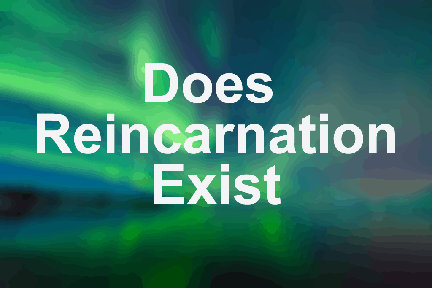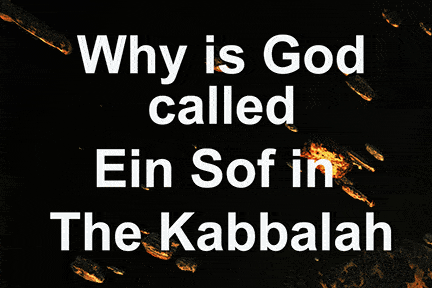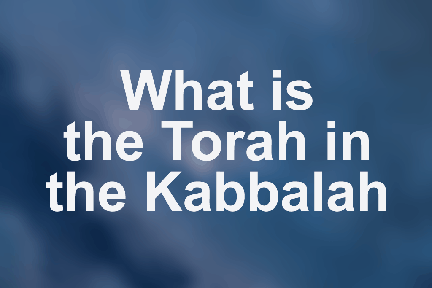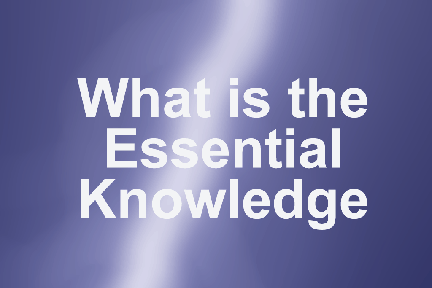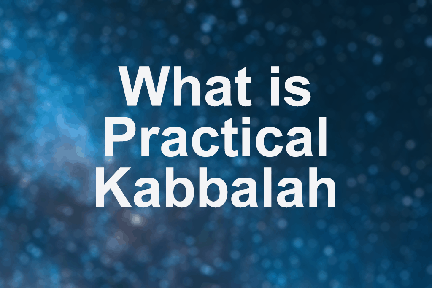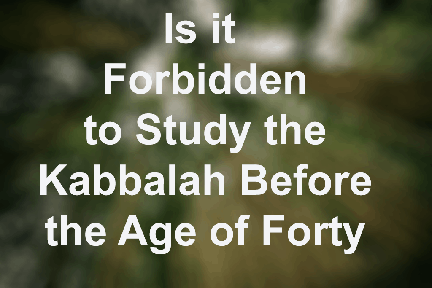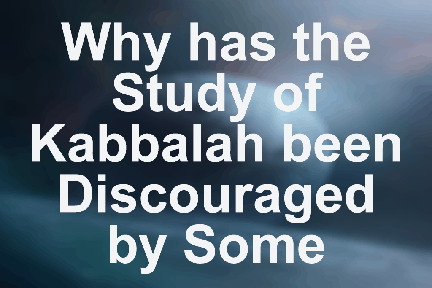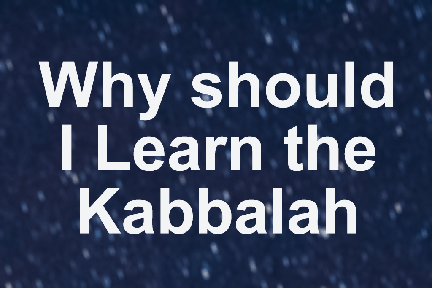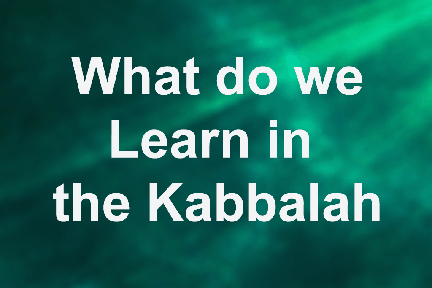Non-Jews that are attracted by the Kabbalah could get an “intellectual” insight of its concepts and a feeling of well-being by its values, but have no direct participation in its realization, since they do not observe its intricate relations with the commandments of the Torah and the prayers.
For example; when praying three times a day, we participate in the unification of particular lights or energies for the guidance of the world, by observing the Shabbat this participation is enhanced, and our rituals correspond to very particular actions that are reflected on these energies. About all of the other prayers, rituals or commandments of the Torah are also in direct relation with these lights or energies that are in charge of the guidance, and the manifestation of G-od’s presence. A non-Jew will study this intellectually but will not act on it.
This is the reason why throughout the history, all the main and important Kabbalists were very meticulous in observing all the commandments of the Torah in their least details.
The Yetser Hatov corresponds to the good or positive impulse in man, the Yetser Hara’ is his bad or negative impulse.
The good deeds of man have an effect on the four higher worlds, his bad deeds; on the four lower worlds. It is only when man sins, that the negative side can grow in strength. The negative aspect grows inside him; this is his Yetser Hara’, it cuts him off from the higher worlds, and uproots him from the Kedushah .
The Yetser Hara’ almost constantly tries to seduce him, and make him stumble, while the Yetser Hatov, on the other side, tries to attract him to Torah and Mitsvot and to help him do the Tikun (rectification) of his Neshama .
The two aspects of Yetser Tov and Yetser Hara’ were created to allow man to choose good over bad by his own free choice.
To ascend from its original level, a soul needs to reincarnate to do its Tikun. This Tikun of the soul is realized by the Gilgul (reincarnation) and/or by the ‘Ibur (attachment). While Gilgul is the reincarnation of a soul into a body from the time of its birth until its death, the ‘Ibur is an attachment of another soul to his own soul, that could come and leave at anytime.
If man does not do the Tikun for the level of his soul for which he came, he comes back and reincarnates in a new body for a new life. As long as he undertakes the Tikun of his soul in three reincarnations, he will come back again and again as needed, to complete his Tikun. However, if he maintains his wrong behavior and neither performs nor advances in his Tikun, he will not return after the third reincarnation.
There are different reasons why a soul might have to come back and reincarnate. It could be to repair or rectify an act for some damage he caused by his wrongdoings, or by not accomplishing the Mitsvot – commandments. The secret and reasons behind the accomplishment of the Mitsvot is to help, or make the Tikun of the soul.
As there are 613 parts to the soul, and 613 veins and bones to man, similarly, there are 613 Mitsvot and 613 lights in each Sephira or configuration. Each Mitsva corresponds to one part of the soul and of the body; by performing a positive commandment or avoiding a negative one, the corresponding part of the soul is reinforced and repaired. Failing to perform the positive Mitsva or to avoid a negative commandment causes direct damage to one’s soul and requires repair in this life or in a future reincarnation.
It is only by getting another chance to do or undo what he should have done or not do, that man makes the necessary Tikun of his soul, which can now rise to the higher realms and rejoin its source.
In Hebrew, the word “Tikun” has different meanings. It can be understood as reparation or rectification, and also as function, relation or action.
There are different types of Tikunim:
– Tikunim that took place in the first emanations to repair the worlds.
– Tikunim for the construction and inter-relations of the Sephirot and Partsufim (configurations).
– Tikunim of certain Partsufim (function or action) for the guidance of the worlds.
– Tikunim (rectifications) for the souls.
For more on Tikun, see Tikun under Kabbalah studies
Since the intention of the Creator is to bestow goodness on His creatures, all the levels of creation were put in place so His kindness could emanate to them, yet in such a way that they would be able to receive it. Complete rigor will be the destruction of anything not perfect, while complete kindness will permit everything without restriction. However, these two aspects are necessary to make the guidance of kindness and justice and to give man the possibility of serving the Creator by their free will.
After the Shvirat HaKelim (breaking of the vessels) with the emanation of the lights of the name MaH (45) and BaN (52), G-od could have done the Tikun (repair) of all the worlds, but then, there would not have been a reason for the participation of man in this Tikun and a possibility to acquire merit.
For man to have a possibility to act and repair the creation, G-od restrained in a way, his outflow of kindness to this world, to give men the merit of doing the Tikun with their free will. It is by their free will to get closer to their Creator and learn His ways, that men merit their place in the higher worlds when they depart.
“Ein Sof” is the Name of G-od that is the most used in the Kabbalah. His light is perfect, and cannot be measured by any definition or limiting terms. If we think about definitions, we introduce a notion of limit, or absence of its opposite. Being ourselves distinct separate beings, we cannot grasp the concept of the “non-distinct”. Everything we know is finite, by having a measure or an opposite.
We therefore use the name “Ein Sof” (without limit) since we know and admit that G-od and the concept of limitlessness or without end is beyond our human comprehension.
The Kabbalah is the mystical and esoteric explanation of the Torah. All the profound secrets explained in the Kabbalah, are alluded in the letters, words and different stories narrated in the Torah.
The Torah contains four levels of comprehension, of which the highest is the Sod (secret). At this level, we understand that our Tefilot (prayers) and the accomplishment of each one of the Mitsvot (commandments), has a direct influence on the superior worlds and on their guidance.
The Torah has 248 positive and 365 negative commandments. Similarly, there are 613 veins and bones to man, 613 parts to the soul, and 613 lights in each Sephira or Partsuf (configuration), this number is not arbitrary, as there are important interrelations and interactions between them.
Through the knowledge of Kabbalah, we can get to a level of true understanding of the will of the Creator, and in a way “decode” the profound secrets of our holy Torah.
The essential knowledge is the one of the will of the Creator and His ways of guidance in this existence, as explained in the Kabbalah. The other writings explain in the least details “how” to do, but only the Zohar and the Kabbalah explain to us the exact reasons, and effects of all our prayers and actions.
I believe that most yearn to serve at their best the Creator, but have been accustomed to execute and not seek further, or were kept away from this knowledge. It is now time to know and learn and make known this magnificent science, as it is written and recommended .
It is the “other” type of Kabbalah, where names or combinations of names of angels are used with special signs or incantations, sometimes written on parchment, to invoke particular powers and alter normal states of events. It is also called magic
By writing various permutation of letters or names of angels, one could make these superior forces act according to his will. There is danger of using these names without a proper preparation and a good knowledge of their forces and limits.
This decree was canceled about 450 years ago, as it was confirmed and written by Rav Avraham Azulay :
“What was decreed from above; not to study the Kabbalah openly, was for a limited time only, until the end of the year 5260 . From there and after, it was allowed, and from the year 5300 it was decreed that it is a “Mitsvah” (commandment). (Or Ha’Hamah, introduction).
Also two of the most important Kabbalists of all times; the Ari Z’al and the Ram’hal started very young as they both died before the age of forty
All the rabbinical authorities have always agreed on the ultimate importance and truthfulness of the Kabbalah, they just did not agree on the way this knowledge should be disseminated. Some insisted that only a very selective group should be allowed to learn Kabbalah, and only after attaining a high level of purity and comprehension of all the other writings.
Others believed that it should be more accessible and taught to most Jews. During the 16th century with the coming of Shabbetai Tsevi who was called the “Kabbalistic Messiah”, the Jewish community was divided between his followers and the “non-believers”. After converting to Islam, this false Messiah caused a big deception and mistrust in the teachings of the Kabbalah. The rabbinical authorities of the time became even more severe with the learning of Kabbalah and some were even persecuted for learning or writing on the subject
The word Kabbalah comes from the verb Lekabel (to receive), but to receive it is first necessary to be prepared, and to be a Keli (recipient) able to receive and contain this knowledge.
A Kabbalist is a person who is accepted to receive this knowledge, and is able to hold it by living in the path of Torah and rightness to strengthen himself constantly. He is a spiritual person who will give utmost importance to the higher meaning of things, and continually try to advance in his learning. For him, the main goal of this existence is to get closer to the Creator and serve him to the best of his possibilitie
Firstly, to understand what is expected of me, how I can better accomplish His commandments, the purpose of my prayers and actions.
Secondly, to get closer to my creator by learning His ways, and understanding the different emanations of His lights and powers in this world, and the others.
Thirdly, to “connect” with G-od, by deepening my understanding of His presence and manifestation in this existence, to have a fuller spiritual life and find meaning to our lives.
Through the knowledge of Kabbalah, one can get to a level of true understanding, and in a way “decode” the profound secrets of this existence as found in our holy Torah.
In the Kabbalah we learn how and why G-od created the world, in what way He governs it, the provenance of the souls and angels, the purpose of the existence of evil, the systems that are put in place for the true guidance of the worlds, and more.
The Kabbalah teaches the unfolding of the worlds, the various powers of influence on these worlds, the role of man in the creation, the will of the Creator and so on. It explains in details; the creation of the present and previous worlds, the different lights or energies that make their guidance, the final goal of man and the creation.
The Kabbalah explains often allegorically, the beginning of creation as well as all the dynamic systems that are put in place to interact with man, and for the guidance of the worlds. These systems make us understand the purpose of our actions, their interactions with the superior realms, the hidden messages and meanings in the Torah. With a deeper understanding of the reasons and goals of all these actions, one could definitely ascend to a higher level of service and closeness to his Creator.
In the Kabbalah, one can find all these answers and the exact reasons, and effects of all our rituals, prayers and actions. When one decides that he wants to know his Creator, in learning this science he ascends to a higher level of action and superior understanding and thus live and feel a more intense relation with his Creator. He will also realize his smallness compared to these incredible forces, the perfection of the Lord and His infinite love for His creatures.


